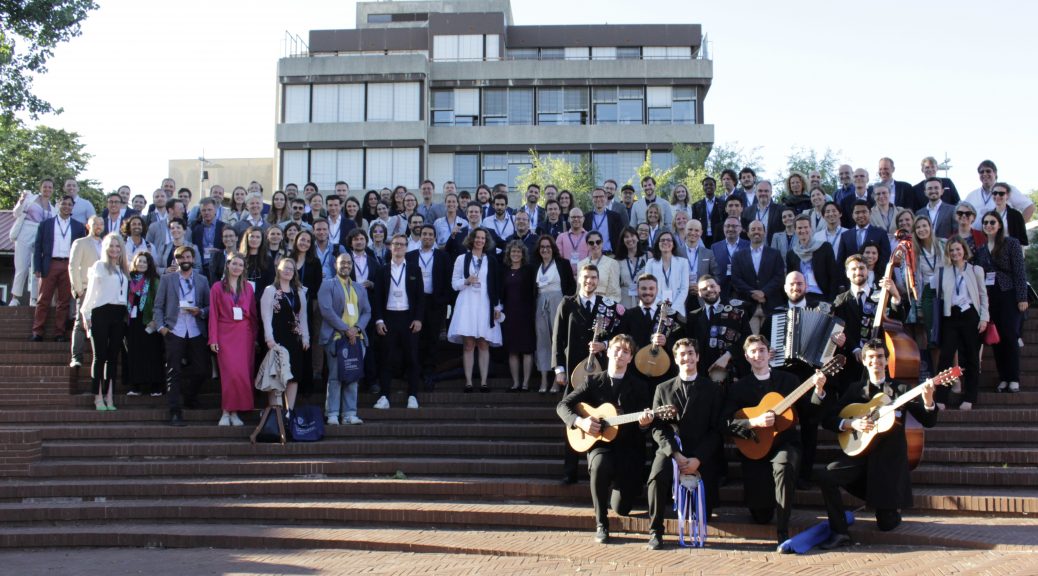
Conference Debriefing (31): ASCOLA2022
It is this time of the year when antitrust folks from around the world flood the airports and cause major disruptions in air travel. The reason is: They are all on the move to the next most exciting conference. Rupprecht Podszun attended #ASCOLA2022, the Annual Conference of the Academic Society for Competition Law that took place as an in-person event in Porto, Portugal. He answers the main questions in this Conference Debriefing!
Name of event: 17th Annual Conference of ASCOLA (Academic Society for Competition Law)
Topic: “Competition and Innovation in Digital Markets” – yet the official motto does not count so much, essentially, this is THE place where competition law academics showcase their work.
Place & time: 30 June – 2 July 2022 in Porto, Portugal, at the Universidade Católica Portuguesa.
Host: Professor Sofia Pais hosted with her team – and did a brilliant job. When did you ever see distinguished law professors rock the boat dance on a boat to Britney Spears? Of course, a lot of prep work is also done by other Ascolians, led by Michal Gal of Haifa University, the President of ASCOLA and its “heart and soul”, as treasurer Peter Picht put it.
Audience: ASCOLA only admits scholars, so discussions are free from enforcer or law firm biases. There were more than 130 people coming from all over the world. For instance, we spotted Rachel Burgess from Australia, Alexandr Svetlicinii from Macau, Sei Shishido from Japan and Sandra Marco Colino from Hong Kong. There was a whole group of South American scholars including Eduardo Gaban and Juliana Oliveira Domingues, Vicente Bagnoli, Vinicius Klein. Some representatives made it from the United States such as Gregory Day, Raz Agranat or Filippo Lancieri (who actually is at ETH Zurich now, but counts as an American scholar in my head). Obviously, most participants are European. There is a good mix of established names and up-and-coming names of very, very strong PhD researchers and young post-docs.
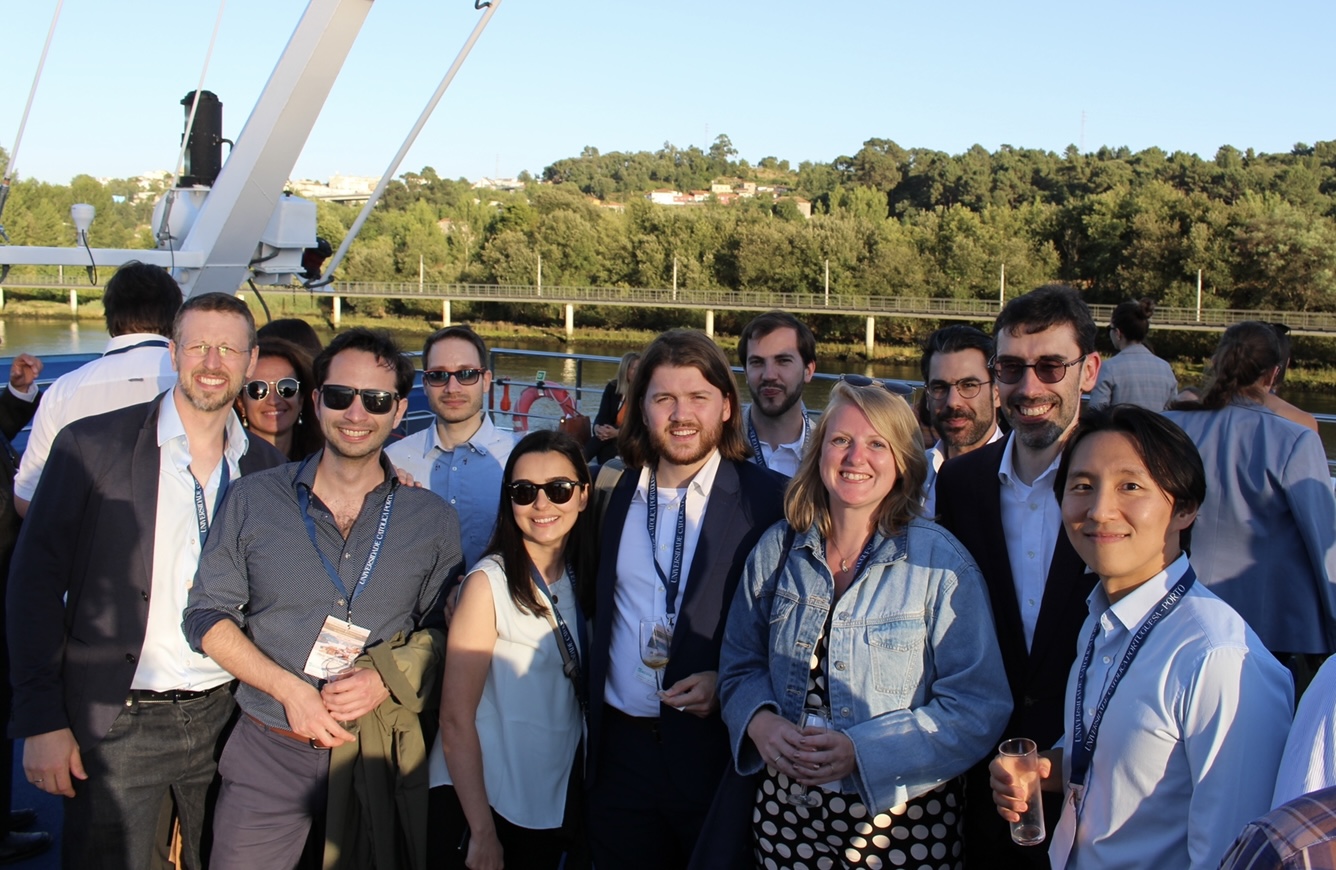
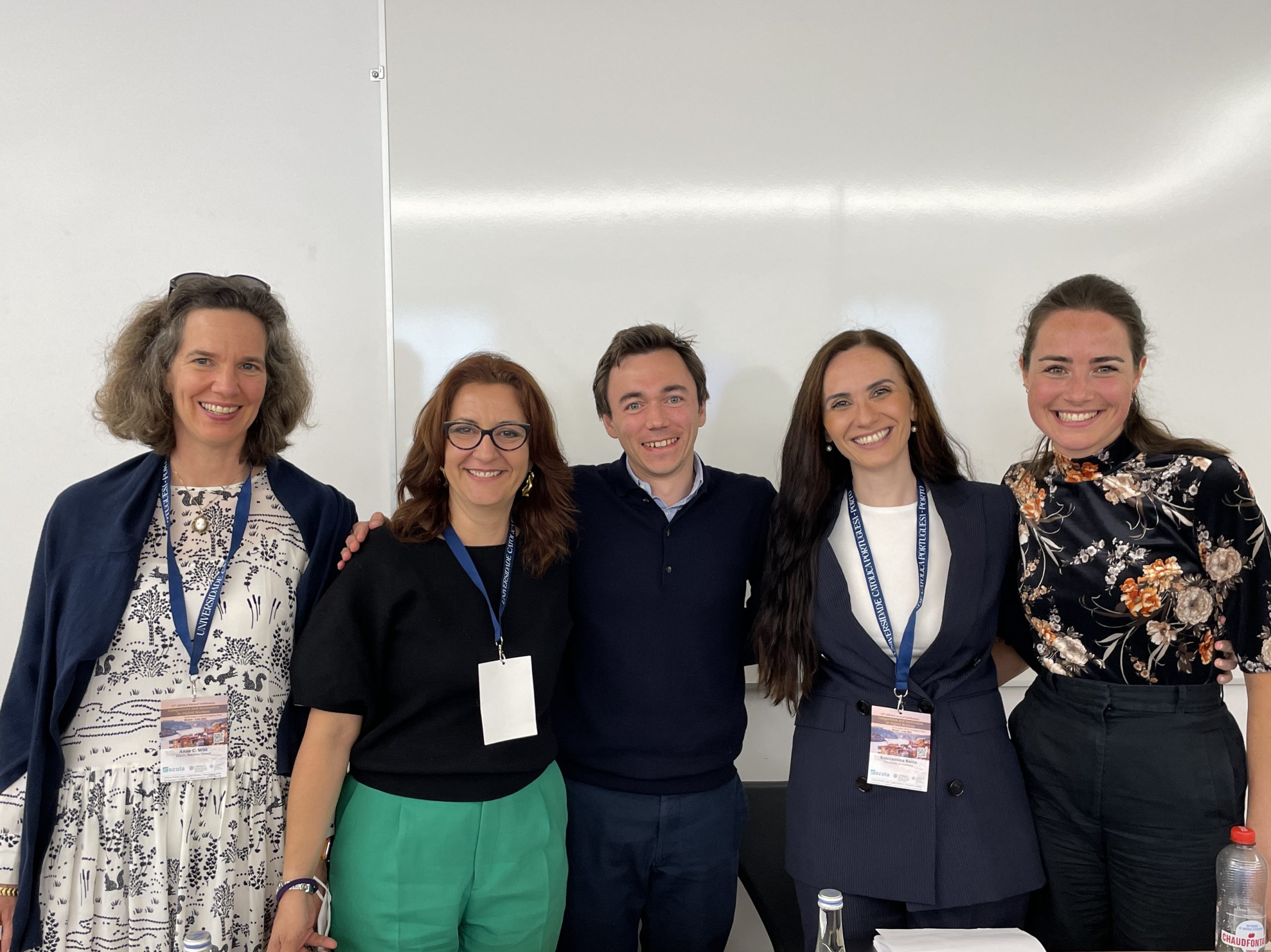
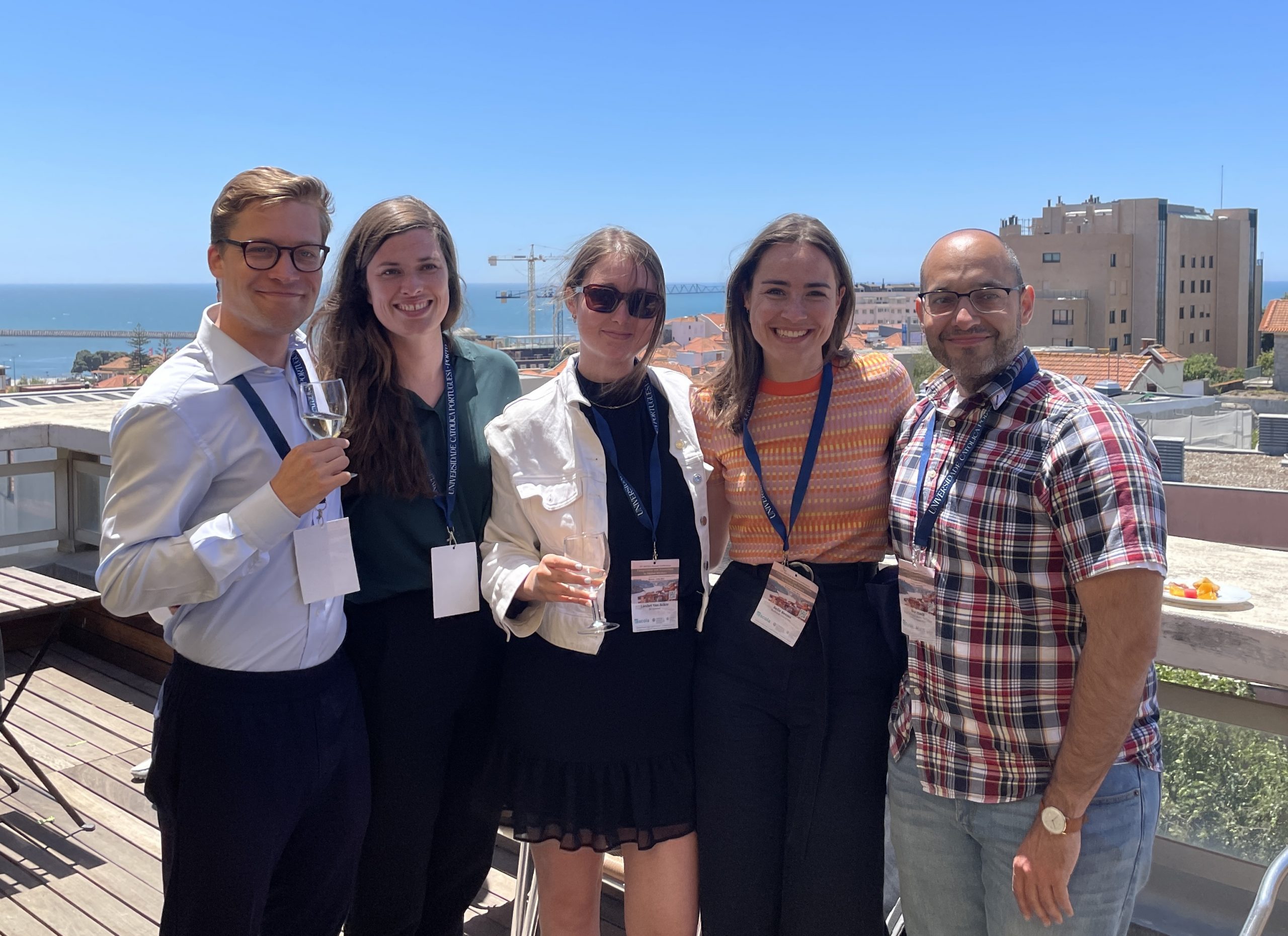
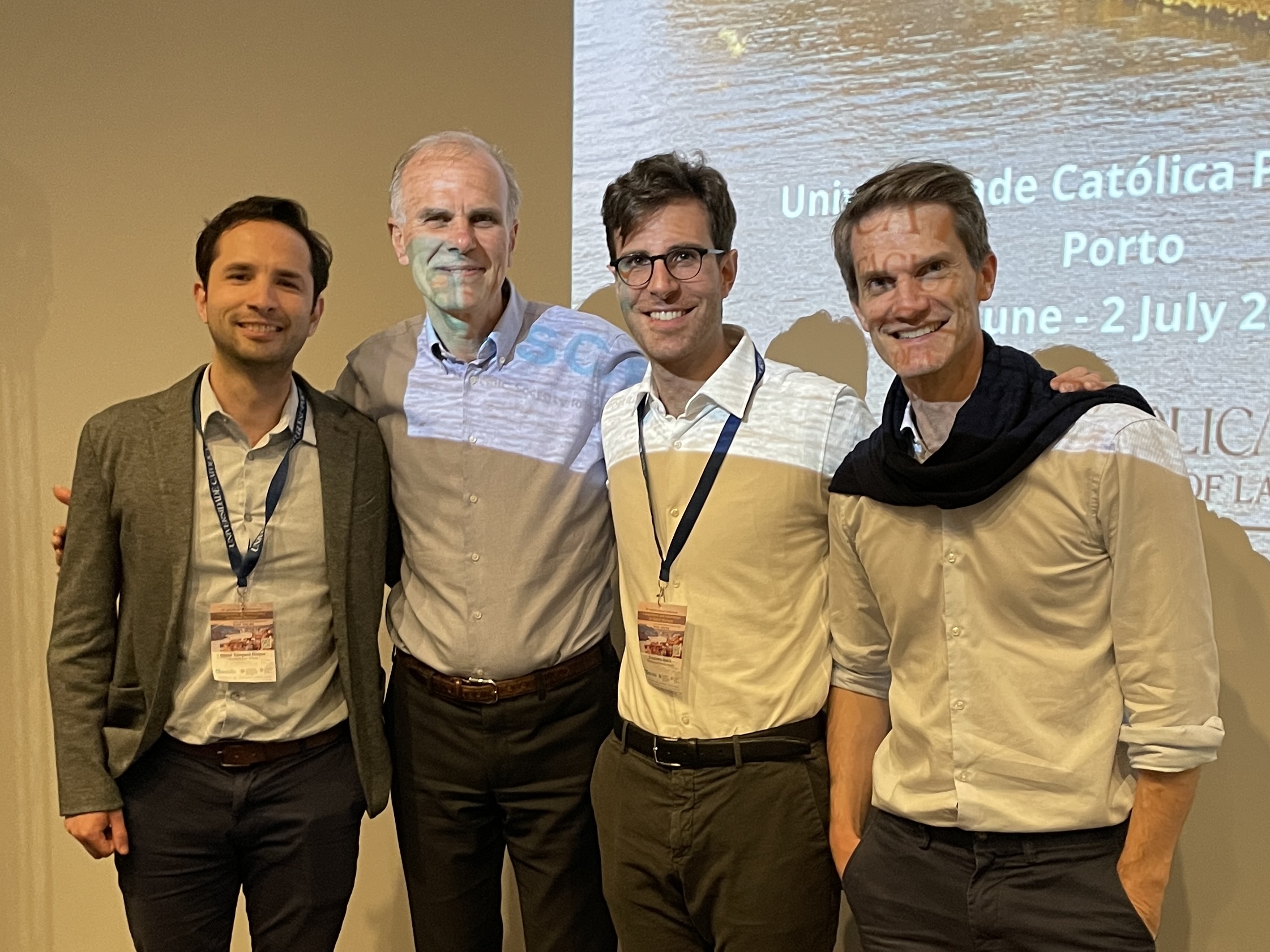
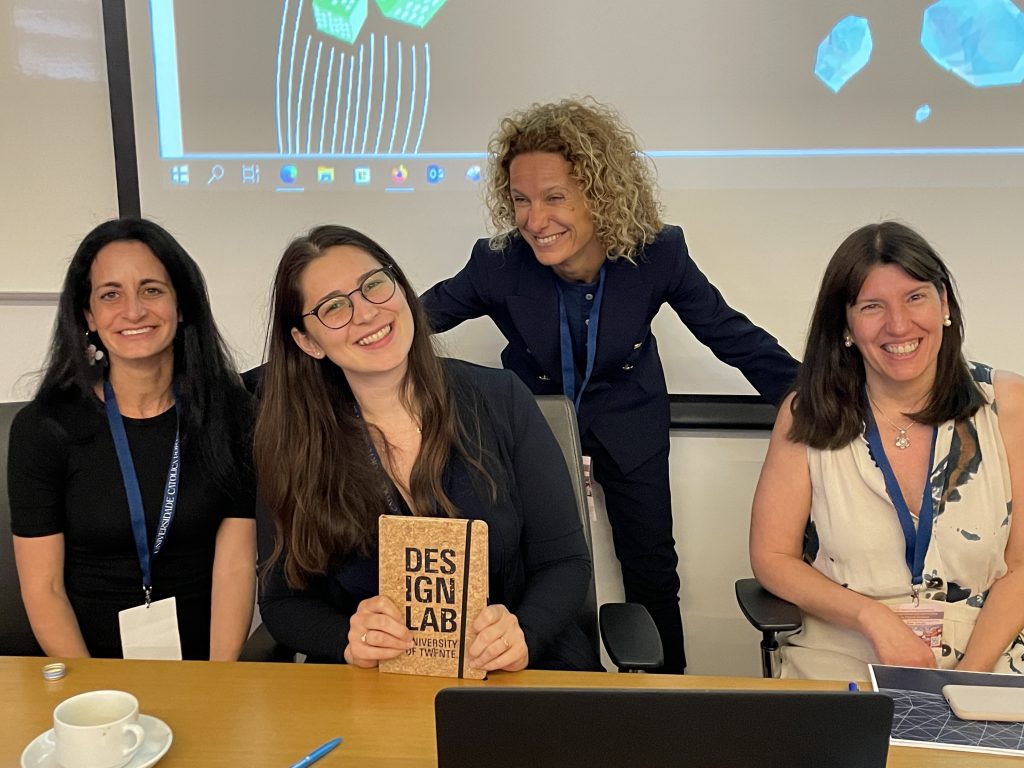
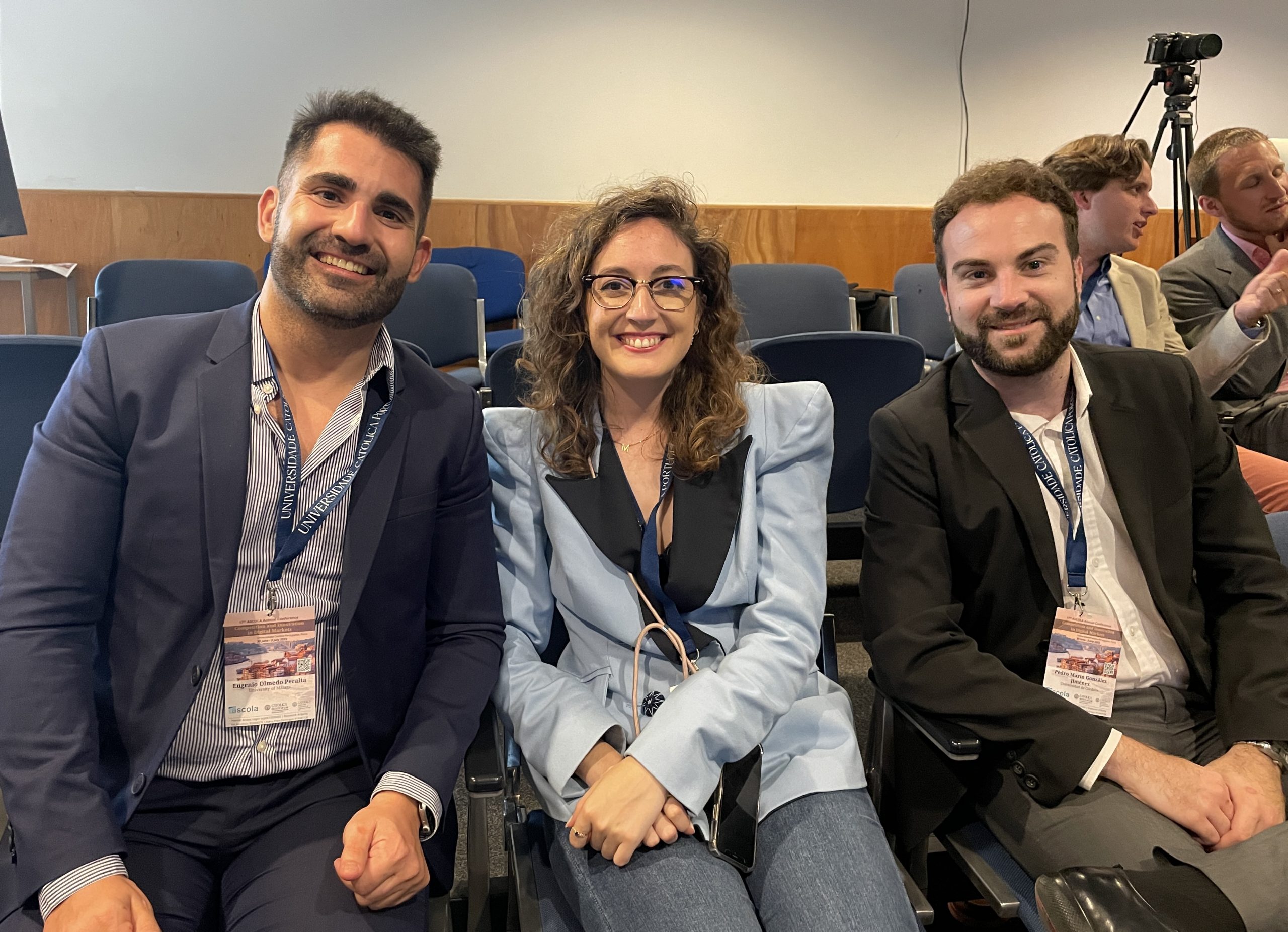
And now to the Q&A:
Let’s go into detail then: You danced to Britney Spears!?
Oh, sorry, I cannot go into details here, and we all hope that the videos are safely stored in non-accessible data silos. But Liesbet van Acker from KU Leuven proved to be multi-talented. She is not only a very promising competition law researcher – she spoke on vertical agreements and sustainability – but may also have a career as a party DJane who knows what makes these introverted scholars dance. And then, “Hit me baby one more time” could also be an antitrust anthem…
Indeed, I can imagine a Google representative sing that tune to Margarete Vestager!
Or Margarete Vestager sings it to the European court judges who slapped DG Competition quite heftily in cases such as Qualcomm or Intel or BTS.
BTS, that Korean boy group?
Ah, no, sorry, I had left the dancefloor topic already… BTS stands for Big Tax Struggle. Remember: The Commission tries to make firms like Apple or Amazon pay taxes, but that’s tougher than you might think. Speaking of Korea, though, reminds me of the panel I chaired where Sangyun Lee from Korea University spoke on abuse of economic dependence. Sangyun’s social media is a reliable source of information when it comes to Korean developments. In his paper at Ascola, he sets out a conceptual approach to cases of dependency, distinguishing between power to do something, so determining outcomes, versus power over someone, i.e. forcing others. An exciting concept! In the same panel, Marco Botta (EUI) mapped the laws on exploitative abuse.
Oh! That is something for the Germans, I guess. Doesn’t the green Minister Robert Habeck want to make excessive pricing better work in practice?
That’s the idea, and Marco’s presentation helped to spot the difficult issues. He sparked a debate in the audience amongst German law professors Christian Kersting from our Düsseldorf team (pro skimming off) and Torsten Körber, our colleague from Cologne (cons). Thomas Weck (who will move from the Monopoly Commission to become a professor at the Frankfurt School of Finance) weighed in, too.
You Germans… It seems that the Facebook data case extravaganza has given you the appetite to stay ahead of the enforcement curve – now excessive pricing for real!
For scholarship, that is excellent! The Facebook case still sparks interest. Several panels dealt with the data economy – and of course with the Digital Markets Act (DMA). The DMA panel attracted many listeners in the audience at 9 am on the Saturday morning after that boat trip. Speakers highlighted so many problems that it needs a lot of optimism to see the DMA change digital markets for real. Konstantina Bania (Sheffield) for instance looked at the interplay with other regulations like the GDPR and the directive for audio-visual media. She sees “fertile ground for litigation”. Belle Beems (Raadboud) also fears enforcement problems since too little attention was placed on institutional and procedural matters during legislation. Anne Witt (EDHEC) criticised the per se rule approach of the DMA. For a more sophisticated analysis, I have to refer you to Elias Deutscher (East Anglia) who presented an elaborate model of error-cost-analysis re the DMA.
If it has mathematical formula in it, I pass.
Not so Oliver Budzinski, the economist from Ilmenau, who discussed specific variables with Elias on that Saturday morning – one of the many insightful moments in discussions.
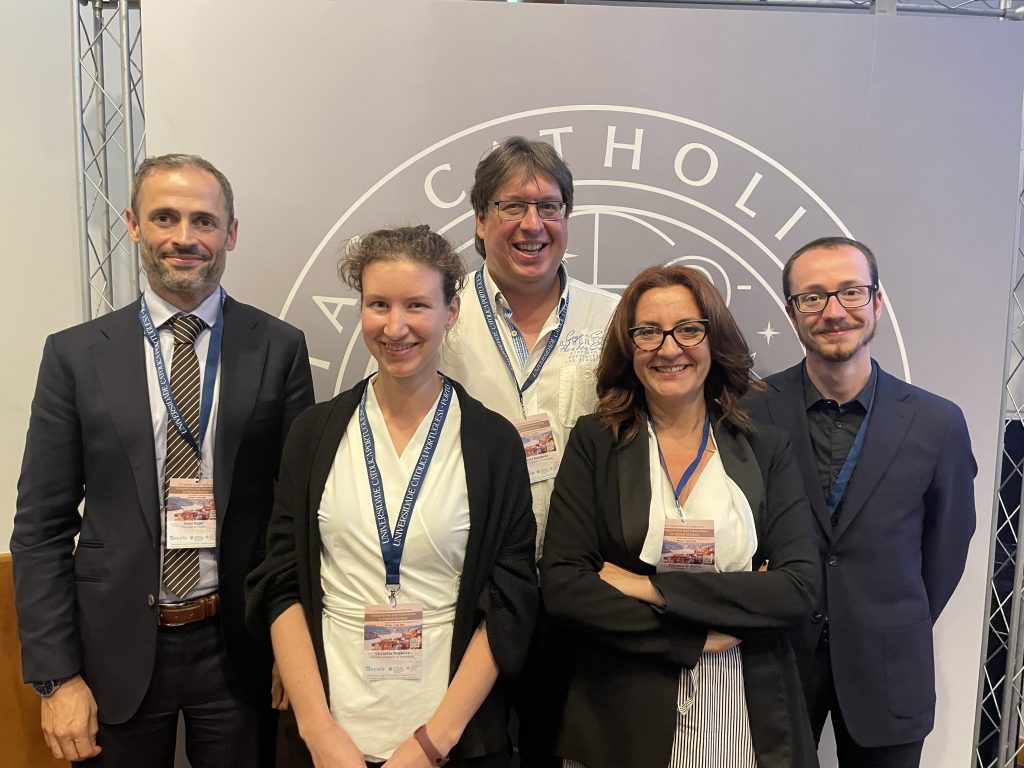
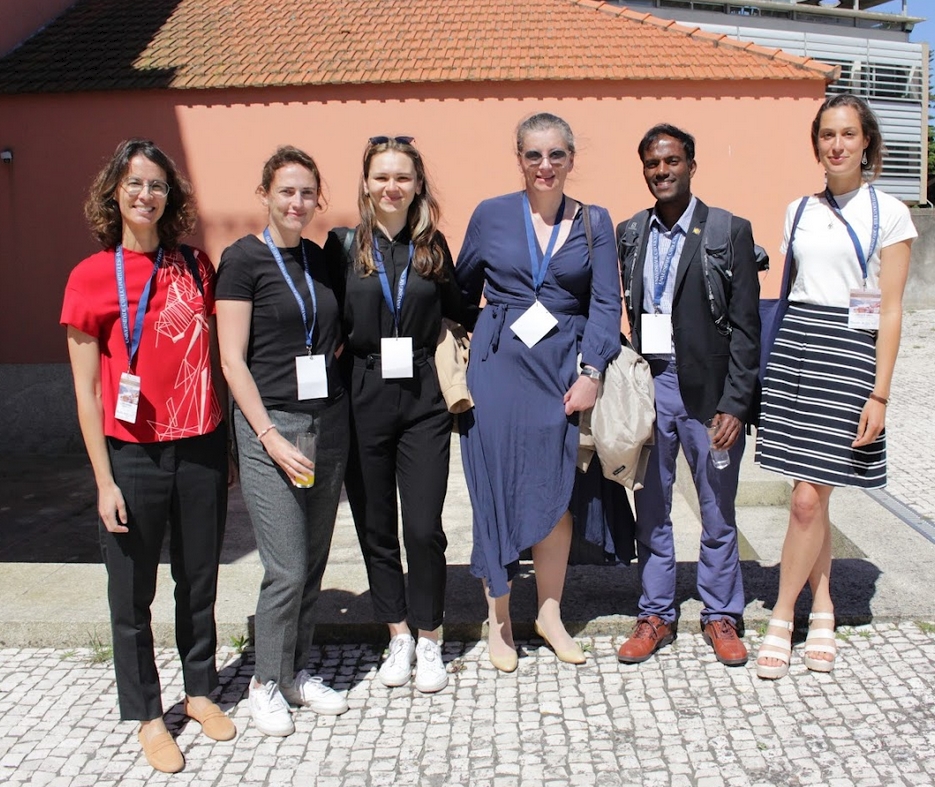
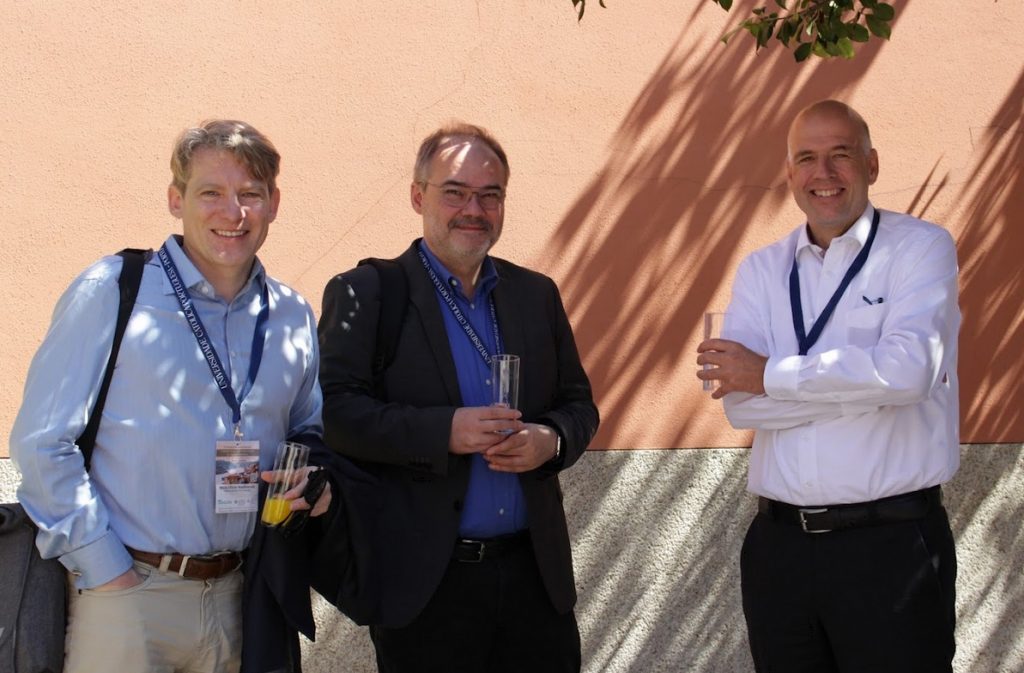
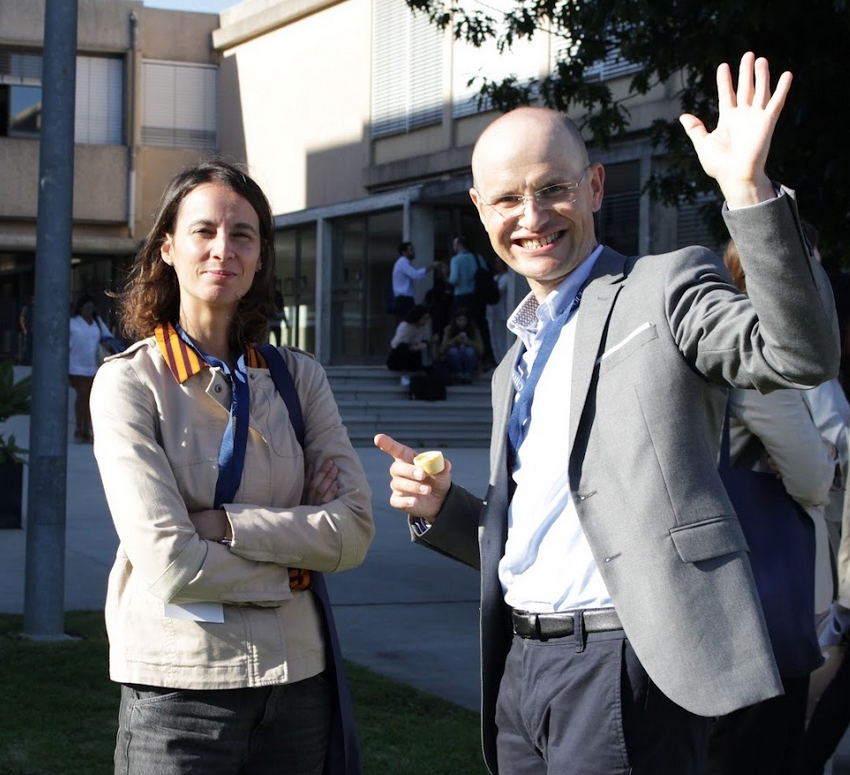
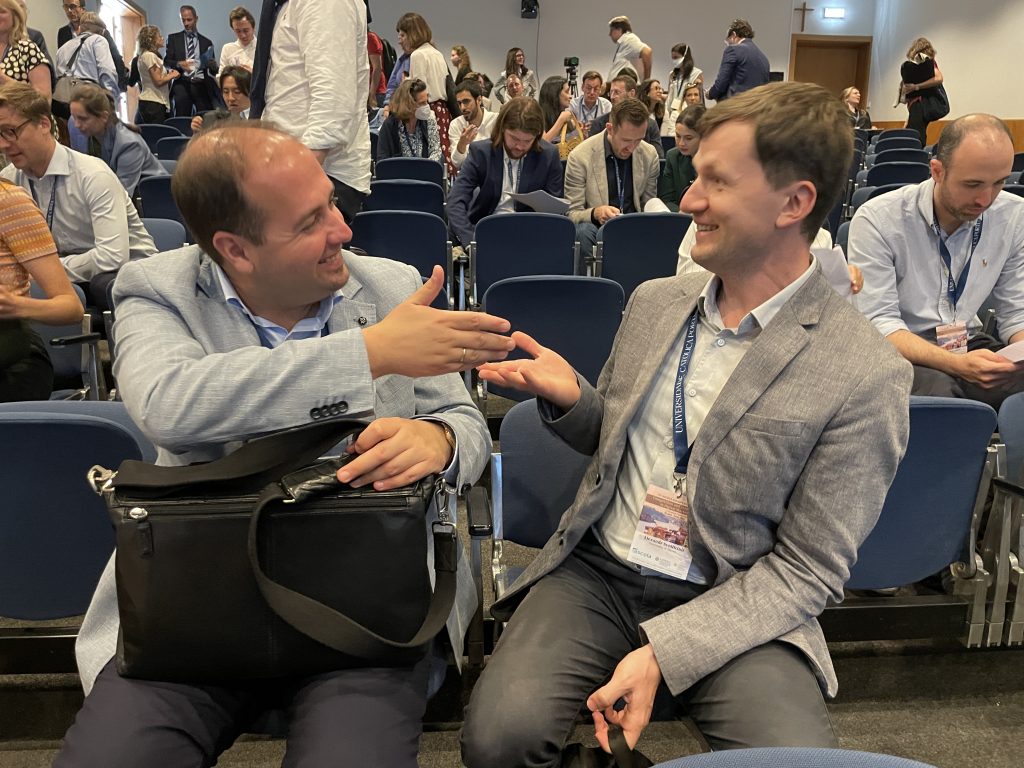
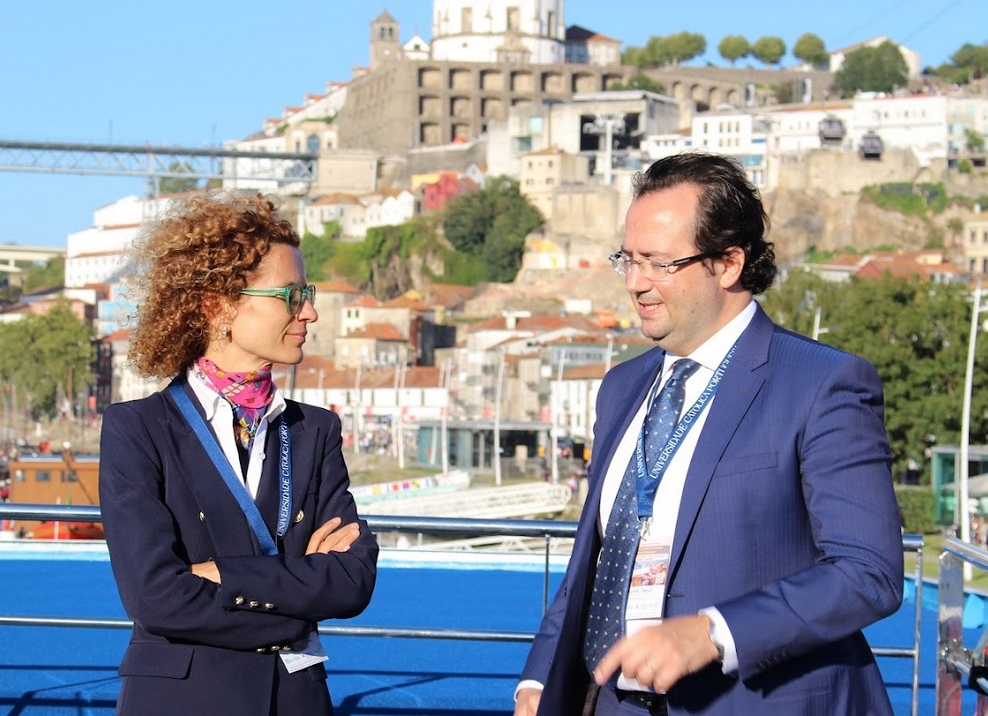
Discussions were longer this time, I heard.
Yes. Still, I loved it when Peter Picht (Zurich), as a chair, asked for conciseness towards the end of discussion time: Fabiana Di Porto (Salento) had presented a paper on computational antitrust. She and her co-authors had analysed consultation documents on the DMA for semantics. Alexander Morell (Frankfurt) refrained from giving a lengthy statement that you would normally expect from a German law professor and just asked: “Can you say with whom the Commission sided in the final document?” And Fabiana answered: “Yes.”
Concise, indeed!
In a panel, chaired by Laura Zoboli, Stavros Makris (LSE) and Friso Bostoen (KU Leuven) had all the time in the world to discuss abusive practices. The third panelist was not able to attend and there were few people in the audience… I cannot report more since I had to present in my parallel session, but I guess it was intense – both protagonists are young stars of EU competition law.
What happened in your panel then?
My submission is that competition law fails to secure access in most cases which leads us to the “limits of antitrust”. We have to broaden perspectives and bring our knowledge of efficiencies, consumer choice and competition to other fields. My co-panelists were two really inspiring guys: Francesco Ducci (Western Ontario) and Omar Vasquez Duque (Stanford) suggest working with randomization as an antitrust tool. Place some random results in the top 5 of the Google search results, suggests Francesco. Omar made an experiment on consumer inertia, asking trivia questions that you can only answer after a web search. He presented different web search settings to consumers.
So what was the question?
Whether they stick with Google or whether they use Bing or Yahoo instead, and what changes when you force them to switch search engines.
Eh, I mean the trivia question to be answered.
I should have known – you are here for the trivia, not the nitty-gritty stuff… well, here you go: What was the first name of the wife of Leon Trotsky in the moment of his death?
Uh, wait, I have to google that.
That is what fascinates Omar about it: Do choice screens work? Bing stands a chance, according to his results, by the way, while the Yahoo interface seems to abhor users – even though the results are the same as with Bing.
Francesco Ducci won a prize for his work, right?
Exactly, the Best Junior Paper Award for all those under 35 went to Francesco who is an Assistant Professor in Canada. The jury loved his clear-cut project and the “elegance” of the paper. It came, by the way, from a workshop at Tilburg University on radical remedies, chaired by Michal Gal and Nicolas Petit in 2021 and organised by Inge Graef and Alex Ruiz Feases. With hindsight: What a great initiative!
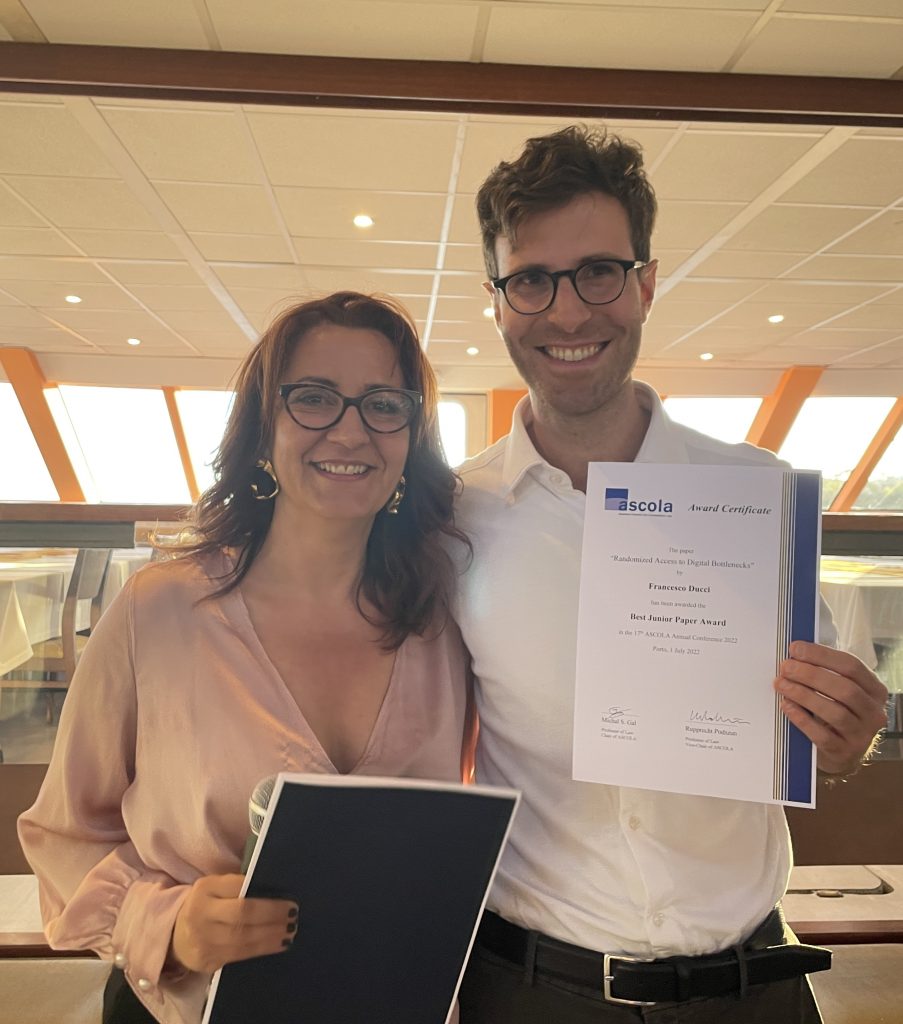
Is competition law still all about digital?
Nope. Digital is just so much part of the economy that it is in every topic. But to give you some examples of non-digital stuff: Judith Schwartz of our Düsseldorf Institute for Competition Economics presented a paper on leniency programmes, showing what a difference it makes if the ringleader is allowed to be a whistle-blower or not. Victoria Daskalova (Twente) spoke on buyer power, e.g. the joint delisting of brands in supermarkets. Sofia Pais, the ever-relaxed host of the whole thing, presented on hub and spoke cartels, taking a recent Portuguese beverages retail case as an example. And Or Brook (Leeds) asked for more block exemption regulations, e.g. on sustainability or worker rights.
Sustainability… I had suspected this to be a number one topic.
And it was! I even read the word “degrowth” in a paper title by Marios Iacovides and Chris Vrettos from Stockholm. In my capitalist ears that sounds like the ultimate challenge to the market economy as we know it. Competition scholars these days debate the ambition of their field. It seems that expectations are high and reach far beyond solving riddles of market power. After having dealt with the privacy issues competition law is now set to fight inflation, inequality, climate change and media censorship. Salil Mehra (Temple University) simply asked: “What is an Antitrust Problem, Anyway?” He started his talk with a quote from antitrust skeptic Robert Bork who put a diagram into his (in)famous book stating: “This diagram can be used to illustrate all antitrust problems.” That was “Antitrust Redux”, now the pendulum swings to “Antitrust Unlimited”.
Not sure I like that.
Salil had a Solomonian solution, stating that antitrust cannot solve the problems, but the problems are aggravated if there is no antitrust enforcement.
That sounds reasonable.
You see, ASCOLA is not having too many radicals, apart from Philip Marsden of course, but I will tell you later about him. Let me just share a feeling I had regarding the general state of antitrust.
Feelings, nothing more than feelings?
Sorry, yes, firstly, ASCOLA is an emotional thing for me, and secondly, it is hard to have proper empirical findings on trends if you can only see a small sample of talks since there are so many parallel sessions over three days. But let me do some ill-grounded extrapolation: I noticed a decline in empirical and techy research methodologies – few diagrams, little use of software tools that I did not even know the abbreviations of. Maybe, we are back to law? More law, less economics, more discussion on burden of proof, not theories of harm? That may even extend to the work of the enforcers. In one panel, Jerome De Cooman (Liège) looked into AI screening of cartels and Oliver Budzinski & Victoriia Noskova (Ilmenau) discussed merger simulation models. The three of them had their reservations regarding these tools (even though they stressed that they are not tech pessimists). Jerome reminded us, by the way, of the fact that the European Court of Auditors had demanded from the European Commission that it should put more effort into detecting antitrust infringements proactively instead of waiting for complaints or leniency applications.
What direction did the keynote speech set the overall direction of the conference?
After Vestager and Steven Salop, this time it was Chief Judge Diane P. Wood of the United States Court of Appeals for the Seventh Circuit. She said that a lot of the Big Tech stuff reminded her of her time when she was the Deputy Assistant Attorney General in the U.S. Department of Justice – her name is big on the Appellate brief in the legendary Microsoft case.
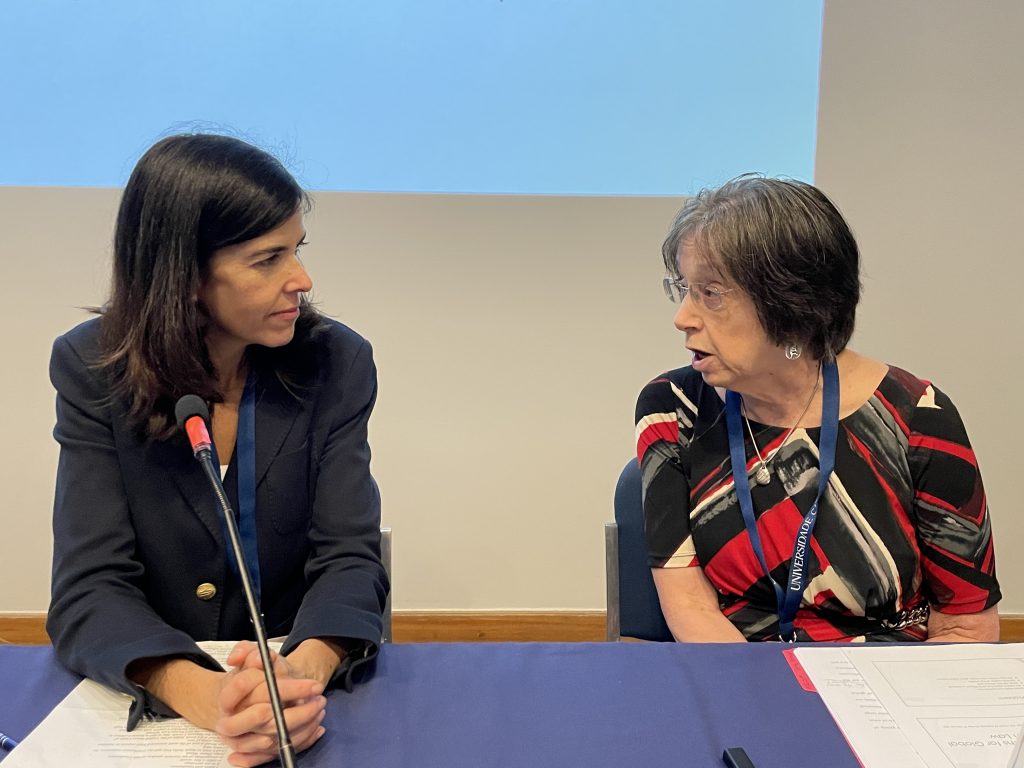
The mother of all antitrust battles…
Exactly! But Judge Wood dug deeper into the history of our field, going back to John Sherman, the alleged father of the U.S. antitrust bill: “He did not even write the thing, but they let him introduce it… I guess that is what they call politics”. She also spoke about the Alcoa case, something like the Microsoft case of the 1940s, and I learned what this case had to do with the Nuremberg trials.
Oh, what is it?
Actually, the case was at the U.S. Supreme Court, but there were so many disqualifications at the court that they could not hear it and thus had to send it to another court. One of the missing Supreme Court judges was Robert H. Jackson who prepared the trials in Nuremberg where he was the Chief Prosecutor of the Nazi elite. That is why Alcoa landed at the 2nd Circuit where Judge Learned Hand got the case into his fingers. He wrote that seminal opinion – “you can make a whole law course out of this case, which I did”, Wood said. She teaches at the University of Chicago.
Don’t mention the U.S. Supreme Court, please, too depressing these days.
True. Over coffee, someone told me the even lower standards of gun control, confirmed by the Supreme Court, made him fear to step outside his door. After academics leaving the UK after Brexit, please expect people from the US join the EU job market… I also learned that even the Democrat leaning judges on the Supreme Court did not have an admirable antitrust track record. Justice Stephen Breyer who recently retired from the bench to avoid the Ruth Bader Ginsburg mishap…
Sorry, how do you mean?
Well, I do not want to sound disrespectful, but RBG died during the Trump presidency, giving him another chance to build a right-wing court. Some say she should have retired earlier. Anyway, my coffee partner said that even the much-acclaimed Justice Breyer was not so helpful for antitrust enforcement after all, not to speak of Ginsburg who sternly sided pro-business.
Judge Wood is of a different stamp, right?
First, I was not sure what to make of her talk. Much of what she said was known to many of us in the audience since she guided us through the paths antitrust law took. But on a second thought, I had the impression she very deliberately sent us a message.
Which one?
She means we should stay on course! Generations of antitrust scholars and enforcers fought hard to tackle the insurmountable problems of their times ever since John Sherman authored introduced that famous bill. We went from the first busting of trusts to Alcoa and to Microsoft. Now keep going! She also identified the huge problem that we have not overcome since the Havana Charter failed in 1948: Globalisation of enforcement. Judge Wood called for an effort to bring enforcement capabilities up to present-day economic globalism of undertakings.
You have unfinished business there.
Absolutely. My impression is that we are in a state of disarray. We see the underenforcement of antitrust, partly due to outdated procedures and overly complex economics. We see a shift towards regulation of digital markets – which means a trend away from competition law. We have developed new concepts and ideas, but the practicalities are standing in the way. And then there is always the big questions and huge expectations from people outside our bubble that we need to manage. The Chief Judge’s message lifted our spirits – we can do it!
You keep spending most of your live “in an antitrust paradise” as in the song of…
Philip Marsden! He did a new rap – “we keep spending most our lives / living in an antitrust paradise”… lyrics to be published soon on www.ascola.org. Philip definitely is the harum-scarum super-trouper of the antitrust scene! His rap on the boat was followed the next day by his presentation on “How *not* to present a paper” – hilarious, the auditorium, caught in the act, did not stop laughing.
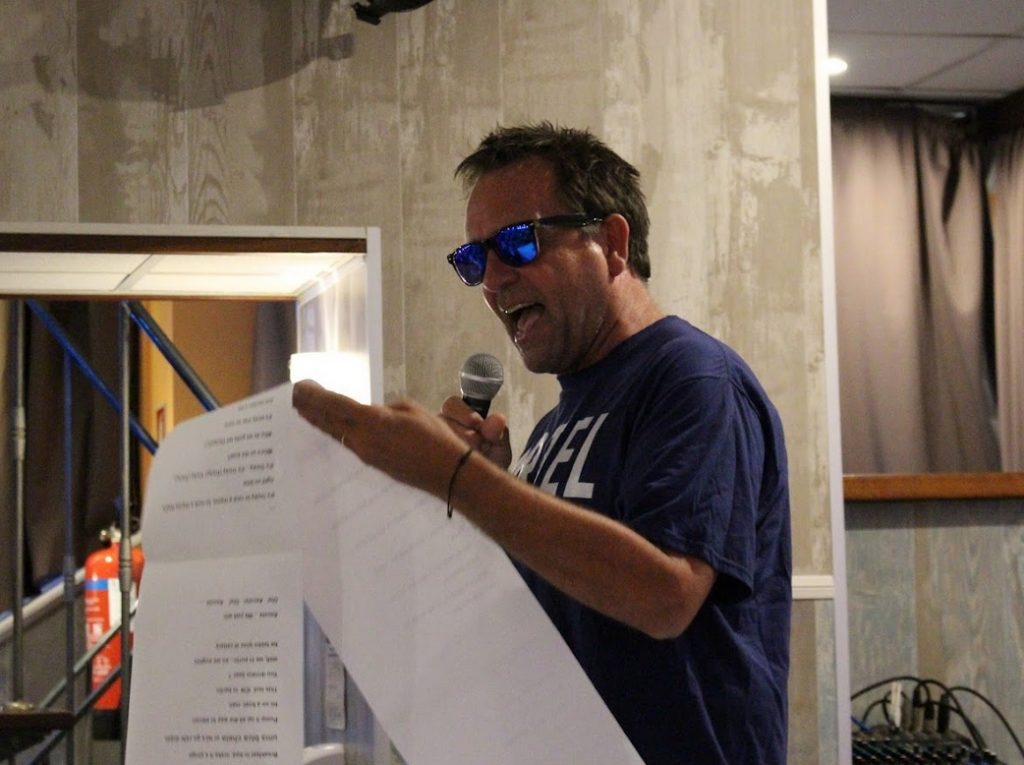
You had a panel on “How *not* to present a paper”?
Learning from mistakes is so much easier! Ask the companies who were hit with a fine and now do well-organised (and possibly still useless) compliance programmes… We opened the conference with a panel on mentoring by the way, since that forms part of our academic lives, but is hardly ever looked at systematically.
Natalia!
Oh, that took you a while to google the Trotsky wife! Let me end with a Portugal moment… We were sitting in the evening sun, feeling the fresh Atlantic sea breeze (no comparison to the hottest ASCOLA of all times back in 2019 in Aix-en-Provence with David Bosco hosting), and out of a sudden, the Tuna da Universidade Católica Portuguesa appears – an all-male group of singers, dancers and musicians who perform traditional music. They were dressed in black “capa e batina”, had their guitars and mandolins and started to sing their tunes.
Antitrust scholar Christiane Bedini from Brazil took it with utmost dignity when she was singled out by the group to be serenaded, wrapped with the black signature cloth of the Tunas. And after their performance, I spotted from the corner of my eyes that the boys, all students, also serenaded Marta Prata Domingos. Rightly so, she was Sofia Pais’ right hand in this conference. Muito obrigado!
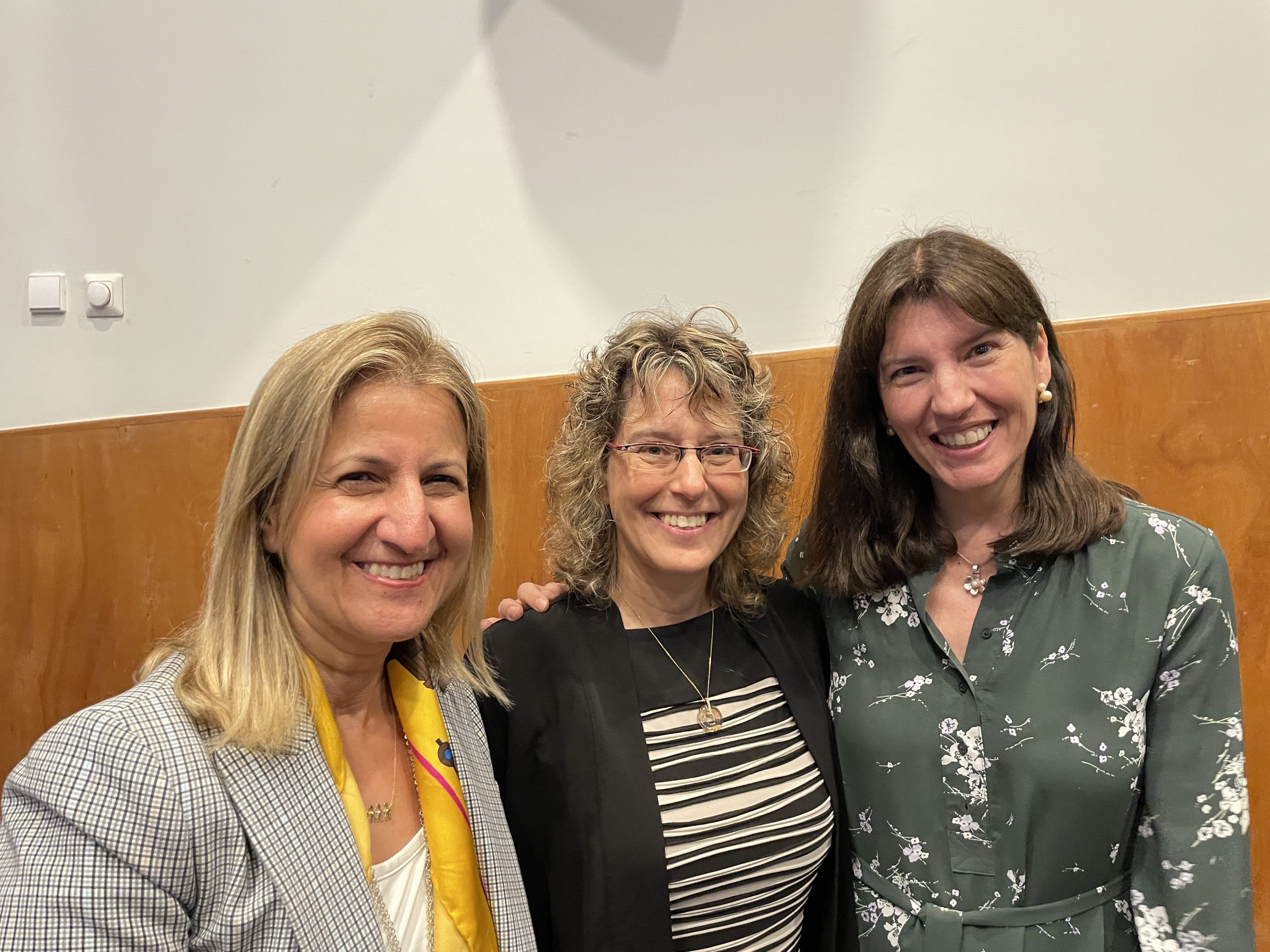
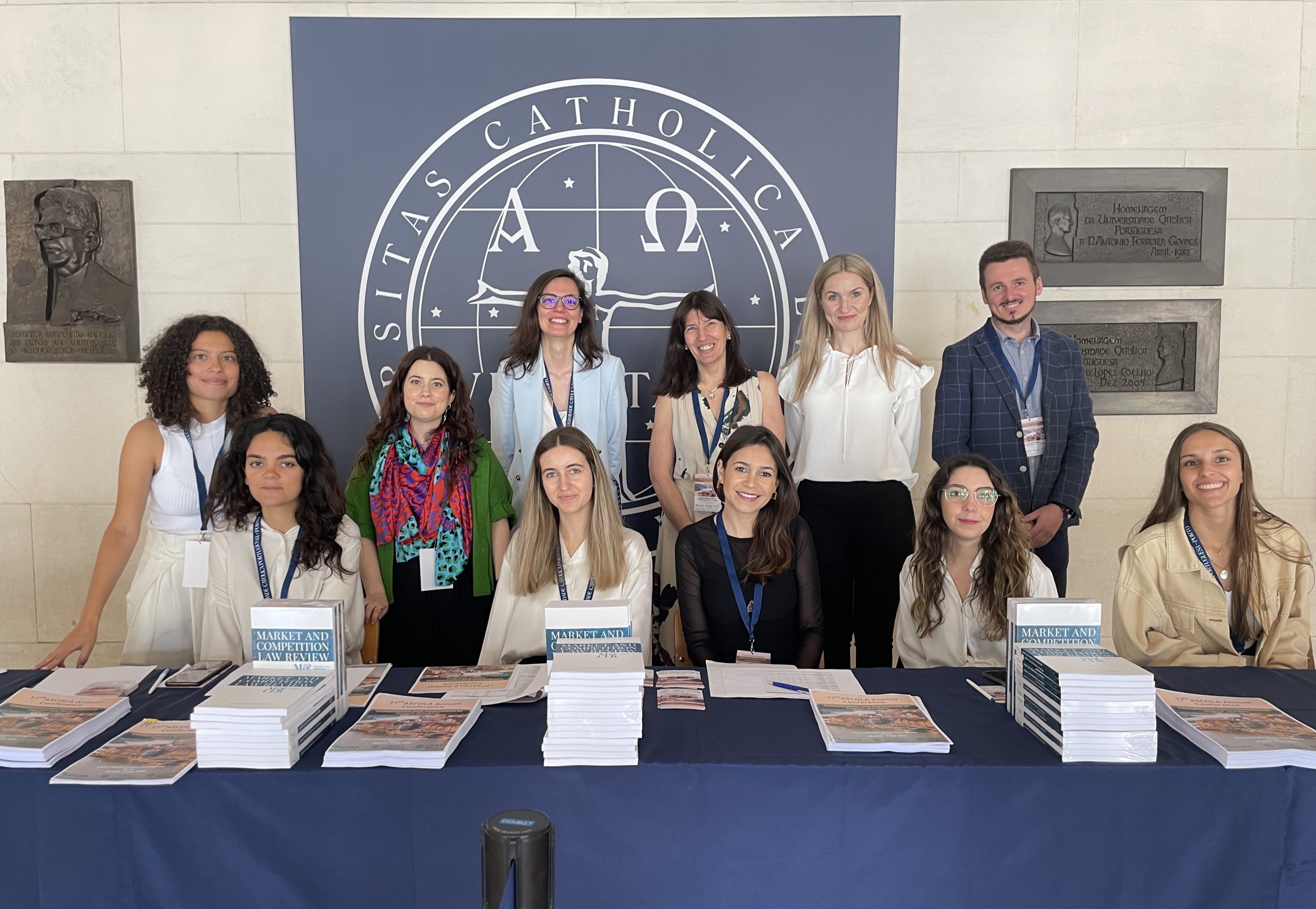
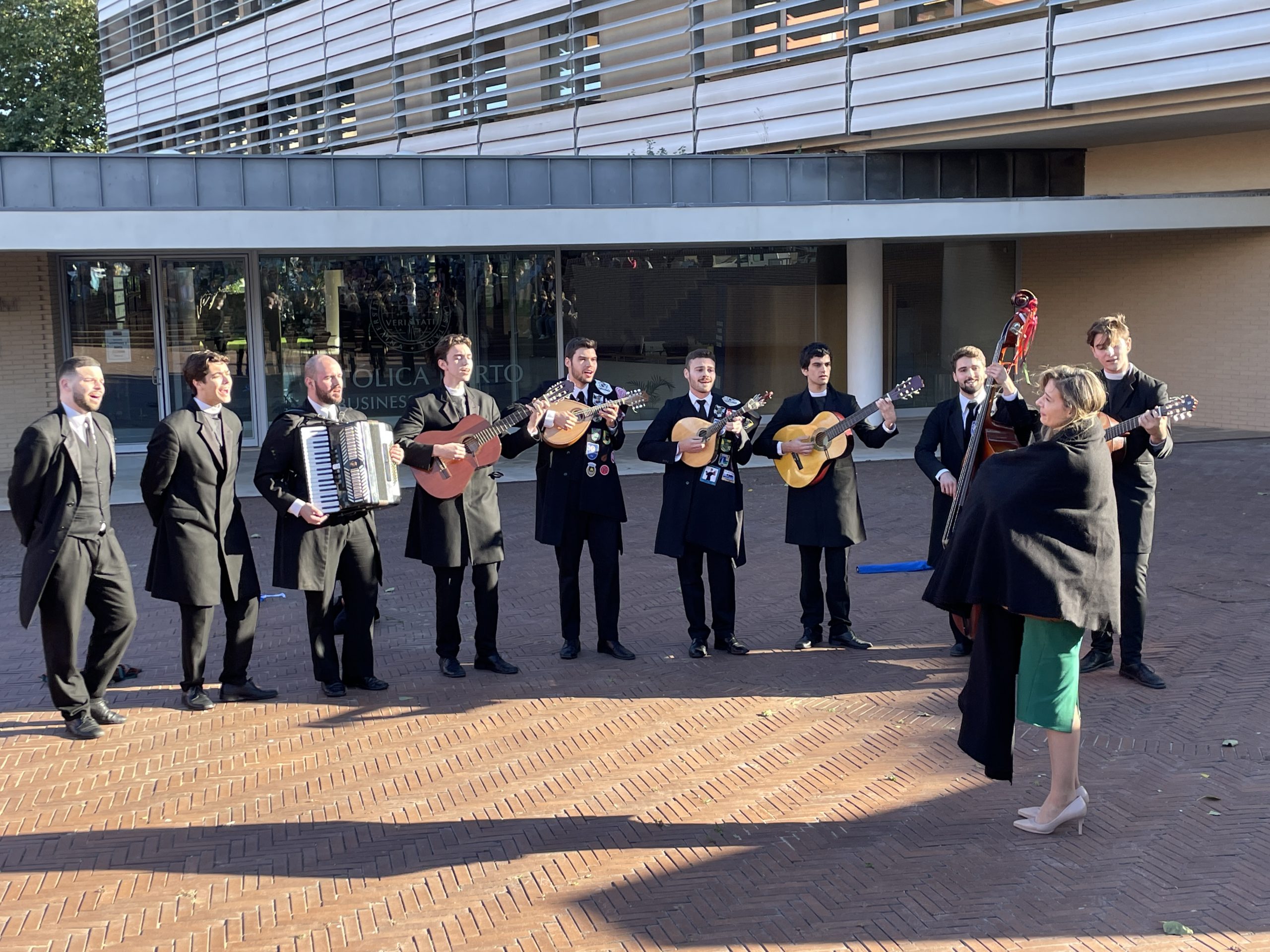
The next ASCOLA conference will take place in Athens, Greece, at the end of June 2023 under the direction of Alexandra Mikroulea from Athens University and Ioannis Lianos, the academic-turned-enforcer head of the Hellenic Competition Commission.
The website of ASCOLA is www.ascola.org. The conference website of the 2022 event with more information can be accessed here: https://fd.porto.ucp.pt/pt-pt/ascola-2022.
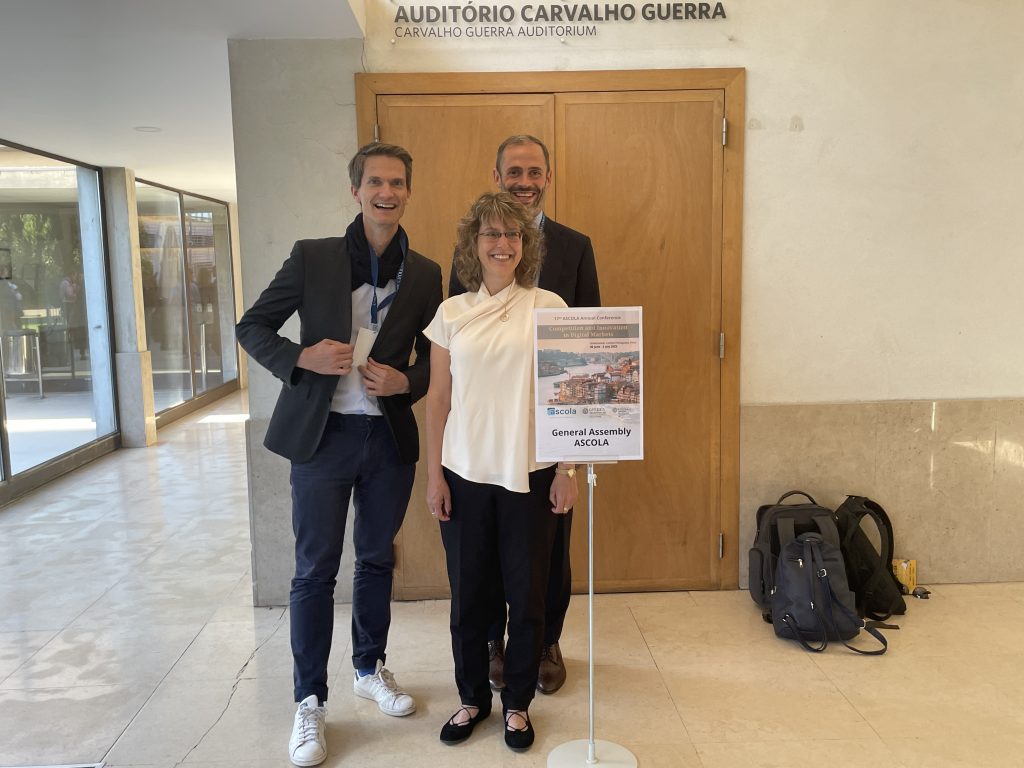
Rupprecht Podszun is a professor of law at Heinrich Heine University Düsseldorf, Germany. He is also the Vice President of ASCOLA, pictured here (on the left) with President Michal Gal and treasurer Peter Picht. Rupprecht’s views on the magnificence of this undisputedly best competition law conference in the world may be slightly biased. But maybe not.
One thought on “Conference Debriefing (31): ASCOLA2022”
The link to the Award winning paper would be the more helpful as google has some difficulties finding the paper